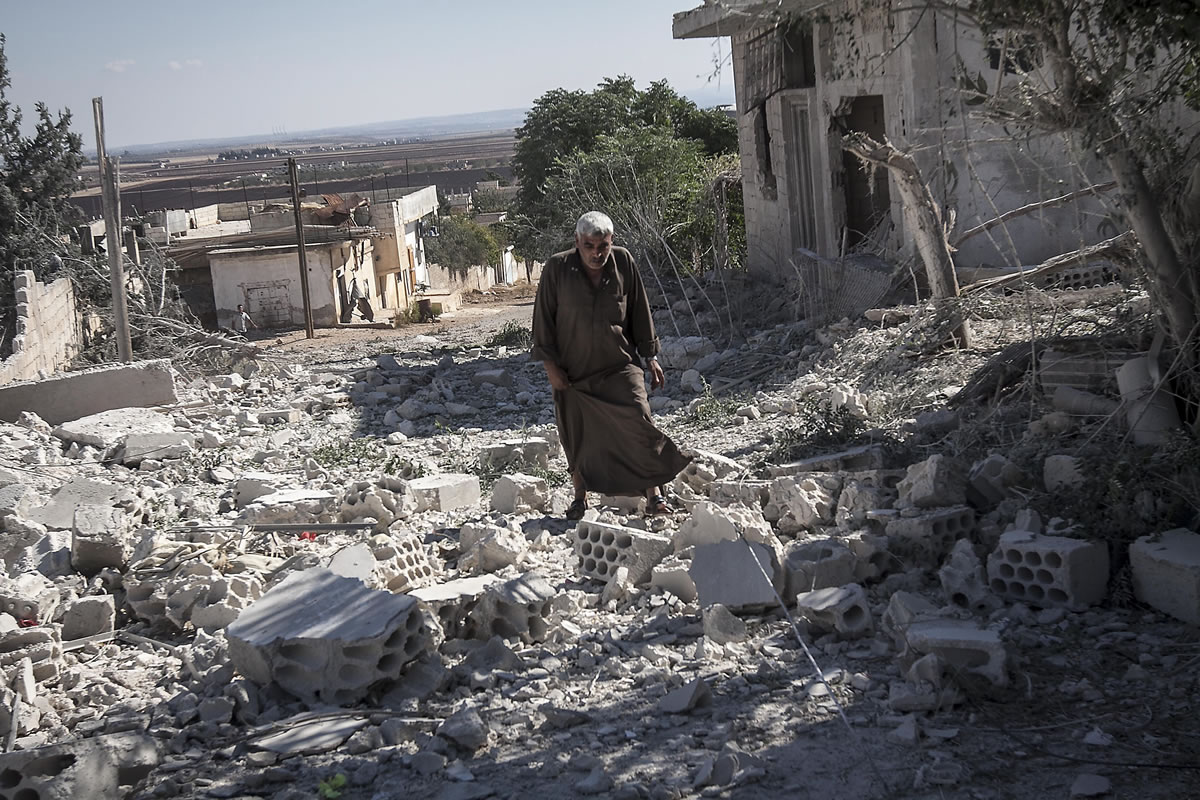BEIRUT — Nearly a dozen of Syria’s powerful rebel factions, including one linked to al-Qaida, formally broke with the main opposition group in exile Wednesday and called for Islamic law in the country, dealing a severe blow to the Western-backed coalition.
The new alliance is a potential turning point, entrenching the schism within the rebellion and giving President Bashar Assad fuel for his long-stated contention that his regime is battling Islamic extremists in the civil war.
The Turkey-based Syrian National Coalition — the political arm of the Free Syrian Army rebel group — has long been accused by those fighting inside Syria of being a puppet promoted by the West and Gulf Arab states supporting the Syrian rebellion.
Wednesday’s public rejection of the coalition’s authority will likely be extremely damaging for its future in Syria, particularly at a time when the U.S. and Russia are pushing for peace talks.
“If the groups involved stand by this statement, I think this could be a very big deal — especially if it develops into a more-structured alliance instead of just a joint position,” said political analyst Aron Lund.
“It basically means that some of the biggest mainstream Islamist forces within the so-called FSA are breaking up with the political leadership appointed for them by the West and Gulf states, to cast their lot with more hard-line and anti-Western Islamists,” he said.
The announcement came less than two weeks after the coalition elected an interim prime minister, Ahmad Touma, charging him with organizing governance in opposition-held territories that have descended into chaos and infighting.
In a joint statement, 11 rebel groups that are influential in Aleppo province in the north, including Jabhat al-Nusra, which is listed as a terrorist organization by the U.S. State Department, said they rejected the authority of the Syrian National Coalition as well as Touma’s appointment.
A video on the Internet showed Abdel-Aziz Salameh, political chief of the Liwaa al-Tawheed brigade that is particularly strong in the northern city of Aleppo, reading the statement.
“These forces call on all military and civilian forces to unite under a clear Islamic framework based on Sharia law, which should be the sole source of legislation,” the signatories said.
Ominously, the rebel groups’ statement was titled “Communique No. 1,” a term used in Arab countries following military coups that suggests the creation of a new leadership body.
It said the rebels do “not recognize” any future government formed outside Syria, insisting that forces fighting inside the country should be represented by “those who suffered and took part in the sacrifices.”
The statement highlighted the growing irrelevance of the coalition and its military arm headed by Gen. Salim Idris, who leads the Supreme Military Council supported by the West, amid increasing radicalization in Syria. The group is seen by many as being out of touch.
Veteran opposition figure Kamal Labwani, a member of the coalition, said the U.S. decision to back away from military intervention in retaliation to the Aug. 21 chemical weapons attack near Damascus and the perceived Western indifference to Syrian suffering was turning fighters in Syria into “monsters.”
“We as a coalition are very removed from the ground now. There is no geographic spot we can enter in the liberated areas. The situation is worse than you can ever imagine,” he said.
Najib Ghadbian, the Syrian National Coalition’s U.N. representative, acknowledged in an interview with AP Television News that there was a “growing rift” between the mainstream FSA and extremist groups. He said Idris had cut short a trip to Paris to deal with the rebel announcement.
The U.S. decision had created “a lot of frustration,” he added.
“The longer we wait, the more … difficult it is going to become,” Ghadbian said in New York. “Nothing is going to be, in fact, left to save of Syria.”
For many rebels, the realization that even a chemical weapons attack would not trigger military intervention by the West has led to more radicalization. Last week, al-Qaida militants expelled FSA fighters from a town near the Turkish border after some of the worst clashes between the two sides. An al-Qaida commander in the north was assassinated by FSA fighters a day later.
Wednesday’s statement came hours after a delegation from the coalition, headed by Ahmad al-Jarba, met U.S. Secretary of State John Kerry in New York.



